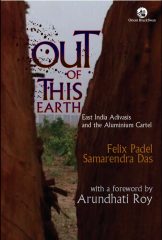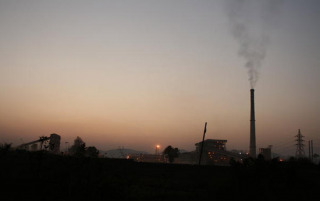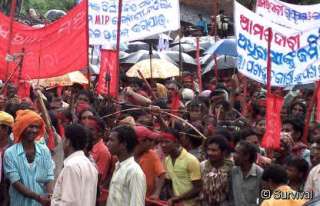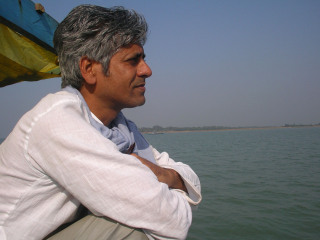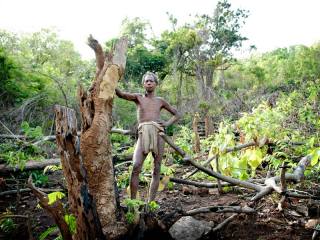Aug 14 2010
2 Comments
Samarendra Das in Iceland – Lectures and Presentations on the “Black Book” of the Aluminum Industry
The Indian author, filmmaker and activist, Samarendra Das, will be in Iceland from August 14th to 21st. This is the second time that he comes here in collaboration with the environmental movement Saving Iceland. The occasion this time is the recent publishing of his and Felix Padel’s book, Out of This Earth: East India Adivasis and the Aluminium Cartel, which is published by Orient Black Swan and could be refered to as the “black book” of the aluminium industry. Samarendra will have a talk and presentation on his book, in the Reykjavík Academia, Hringbraut 121, on Wednesday August 18th at 20:00. More talks will take place in other place around the country while Samarendra is here and will be advertised later.
For the last decade, Samarendra has been involved with the struggle of the Dongria Kondh tribe in Odisha, India, against the British mining enterprise Vedanta, which plans to mine bauxite for aluminium production on the tribes’ lands – the Niyamgiri hills. The struggle has gained strength lately and for example, many official parties have sold their shares in Vedanta on the grounds that the company does not live up to expected demands about respect to human rights and local communities. Samarendra’s part in this can not be undermined, but he has written hundreds of articles, published and edited books, and made documentaries about the struggle and related issues. The new book, Out of This Earth, can be called the “black book” of the aluminium industry, since it addresses all the dark sides of the industry. In a press release from the publisher, Orient Black Swan, this says e.g. about the book: Read More
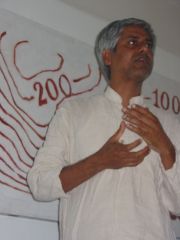
 Orissa is the most mineral rich state in India. It is green and fertile, a patchwork of tiny fields and thickly forested mountains with waterfalls tumbling over their red rocks. Like many of the world’s remaining areas of natural fertility, these mountains are largely populated by tribal peoples, which in India are called Adivasis – meaning literally ‘the original inhabitants’ – and are thought to be one of the oldest civilisations in the world. One quarter of the Orissan population are tribal, making it also the ‘poorest’ state in India according to the World Bank. But its figures judge well-being only by monetary exchange, and fail to mention that there has never been a famine recorded here, and that many Adivasis rarely use money, living in balance with the mountains, streams and forests which provide everything they need. In thanks for natures’ providence many Adivasi cultures worship the mountains on which they depend as Gods, and vow to protect their bountiful natural systems from damage. Some of the Orissan mountains are among the last ancient forest capped hills in India, thanks to the determination of tribal inhabitants against British colonial efforts to log them.
Orissa is the most mineral rich state in India. It is green and fertile, a patchwork of tiny fields and thickly forested mountains with waterfalls tumbling over their red rocks. Like many of the world’s remaining areas of natural fertility, these mountains are largely populated by tribal peoples, which in India are called Adivasis – meaning literally ‘the original inhabitants’ – and are thought to be one of the oldest civilisations in the world. One quarter of the Orissan population are tribal, making it also the ‘poorest’ state in India according to the World Bank. But its figures judge well-being only by monetary exchange, and fail to mention that there has never been a famine recorded here, and that many Adivasis rarely use money, living in balance with the mountains, streams and forests which provide everything they need. In thanks for natures’ providence many Adivasi cultures worship the mountains on which they depend as Gods, and vow to protect their bountiful natural systems from damage. Some of the Orissan mountains are among the last ancient forest capped hills in India, thanks to the determination of tribal inhabitants against British colonial efforts to log them.